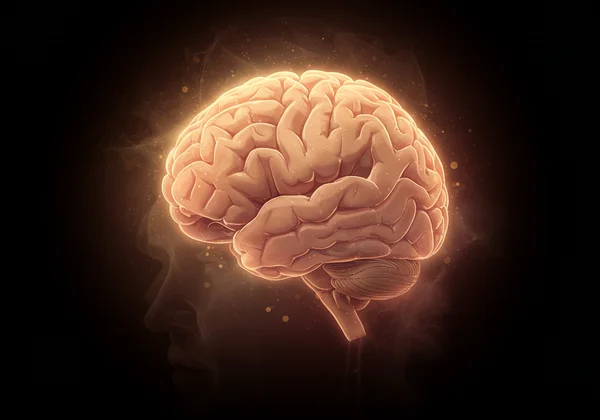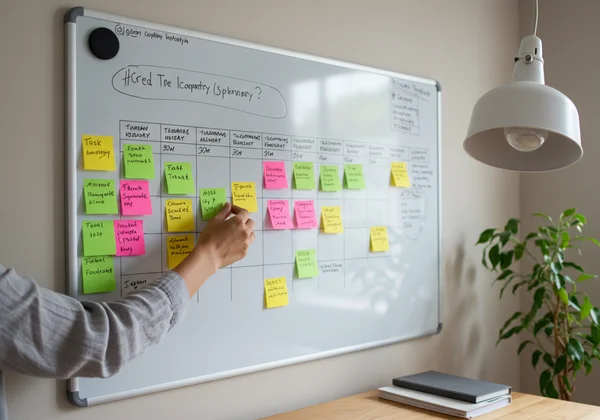Neurodivergence Test & Executive Dysfunction: 10 Tips for Better Focus
October 8, 2025 | By Morgan Hayes
Feeling overwhelmed by daily tasks, struggling with organization, or finding it hard to initiate important projects? You're not alone. Executive dysfunction is a common experience for many neurodivergent individuals, impacting everything from planning to emotional regulation. But what are the signs of being neurodivergent? Often, they look a lot like the daily battles you're facing. This guide offers compassionate, actionable strategies for managing executive dysfunction, helping you navigate these challenges and bring more calm and clarity to your life. Understanding your unique brain wiring is the first step, and a free neurodivergent test can help you explore your traits to begin this self-discovery journey.
Understanding Executive Function & Its Neurodivergent Roots
Before diving into solutions, it's vital to understand what's happening in the brain. Executive functions are the set of mental skills that act as your brain's management system. They help you plan, focus attention, remember instructions, and juggle multiple tasks successfully. When this system doesn't operate as expected, it's called executive dysfunction, a core trait in many neurodivergent profiles, particularly ADHD and autism. Many who experience these challenges find that taking a neurodivergence test provides clarity on why their brain operates differently.
What Exactly is Executive Dysfunction (It's Not Laziness!)?
For years, you may have been told you're lazy, unmotivated, or just not trying hard enough. The truth is far more complex and has nothing to do with your character. Executive dysfunction is a neurological challenge in the brain's ability to self-regulate and direct action. It's the invisible barrier that makes a seemingly simple task, like answering an email, feel as monumental as climbing a mountain. Recognizing this distinction—something a neurodivergent test can help validate—is the first step toward self-compassion and finding strategies that actually work.

Common Challenges: From Task Initiation to Time Blindness
Executive dysfunction manifests in many ways that can disrupt daily life. You might recognize yourself in these common challenges, which often prompt individuals to seek out a neurodivergence test for answers:
- Task Paralysis: You know exactly what you need to do, you want to do it, but you physically cannot start.
- Time Blindness: You struggle to perceive the passage of time, leading to constant lateness or underestimating how long tasks will take.
- Poor Working Memory: You forget instructions moments after hearing them or lose your train of thought mid-sentence.
- Difficulty with Prioritization: Every task feels equally urgent, leading to overwhelm and burnout.
- Emotional Dysregulation: You experience intense emotional reactions that feel disproportionate to the situation.
These aren't personal failings; they are neurological differences that require a different kind of toolkit.
Actionable Executive Function Tips for Daily Organisation
Managing executive dysfunction is less about "fixing" yourself and more about creating external systems to support your brain. Many who discover their neurotype through a neurodivergent test find that these external systems are game-changers. Here are practical executive function tips to bring order to your environment and mind.
Creating Your External Brain: Tools for Visual Planning
If your brain struggles to hold onto information, let your environment do it for you. Creating an "external brain" offloads the mental burden of remembering, freeing up cognitive resources for other tasks.

- Tip 1: Use a Physical Command Center. A large whiteboard or corkboard in a high-traffic area of your home can serve as a central hub for appointments, deadlines, and to-do lists. Using different colored markers can help categorize tasks visually.
- Tip 2: Embrace Sticky Notes. For urgent, single-step tasks, a strategically placed sticky note is unbeatable. Put one on your laptop screen, your coffee maker, or your front door to ensure you see it.
The Power of Micro-Steps: Overcoming Task Paralysis
The primary cause of task paralysis is overwhelm. When a project seems too big, the brain simply shuts down. The antidote is to break it down into ridiculously small, non-intimidating steps.
- Tip 3: The "One-Touch" Rule. Instead of "clean the kitchen," your first step is "put one cup in the dishwasher." Often, this tiny bit of momentum is all you need to keep going.
- Tip 4: Shrink the Time Commitment. Use a timer and commit to working on a task for just five minutes. Anyone can do something for five minutes. This tricks your brain into starting, which is always the hardest part. Gaining this insight can help you understand your needs on a deeper level.
Building Helpful Routines That Actually Stick
Routines are the guardrails that keep your day on track, reducing the number of decisions you have to make. However, rigid schedules often backfire for neurodivergent brains. The key is to build flexible, supportive routines.
- Tip 5: Habit Stacking. Anchor a new, desired habit to an existing one. For example, after you brush your teeth (an established habit), you'll take five minutes to tidy your desk (the new habit).
- Tip 6: Create "Launch" and "Landing" Pads. Designate a specific spot by your door for keys, wallet, and anything else you need to leave the house. This eliminates the frantic morning search and saves precious mental energy.
ADHD Productivity Hacks & Focus Strategies for Neurodivergents
Traditional productivity advice often fails neurodivergent individuals. Instead of fighting your brain, learn to work with its unique strengths and tendencies, which a detailed neurodivergence test can help illuminate. Embrace these ADHD productivity hacks.
Harnessing Hyperfocus: Leveraging Your Unique Strengths
While a wandering attention span can be a challenge, the flip side is often the superpower of hyperfocus—an intense, prolonged state of concentration. Instead of fighting it, learn to aim it.
- Tip 7: Schedule Hyperfocus Blocks. Intentionally set aside large, uninterrupted blocks of time for projects you're passionate about or that require deep concentration. Protect this time fiercely. This is one of the incredible strengths of neurodivergence.
The Magic of Body Doubling and Accountability
Body doubling is a simple yet powerful strategy where you work on a task in the presence of another person. Their quiet company creates a subtle sense of accountability that can dramatically improve focus and task initiation.

- Tip 8: Find a Body Double. This can be a friend working alongside you in a coffee shop, a family member quietly reading in the same room, or even a virtual stranger on a focus website like Focusmate.
Tech Tools & Apps to Tame the Mental Clutter
Leverage technology to support your executive functions. Modern tools can act as an external scaffold for your brain, helping you stay organized and focused. Finding the right tools is a process of self-discovery, similar to the insights gained from a neurodivergence test.
- Tip 9: Use Noise to Your Advantage. For many neurodivergent people, silence is deafening and distracting. Experiment with brown noise, ambient sound apps (like a coffee shop soundscape), or binaural beats to help your brain settle and focus.
- Tip 10: Gamify Your To-Do List. Apps like Habitica turn your tasks into a role-playing game, providing the dopamine feedback that a neurodivergent brain craves and making chores feel more engaging. Exploring tools that work for you is a key part of the journey, just like taking the first step to discover your profile.
Beyond the Test: Building a Calmer, More Focused Life
Managing executive dysfunction is an ongoing practice of self-awareness, compassion, and strategic adaptation. These tips are not about forcing you into a neurotypical mold but about giving you the tools to build a life that honors your brain's unique wiring. By replacing self-criticism with curiosity, you can move from a state of constant chaos to one of calm and confident self-management.
Your journey of understanding is just beginning. If you recognize yourself in these challenges and want to learn more about your personal neurological profile after this self-assessment, a great next step is to explore a neurodivergence test designed for self-discovery. We invite you to start your journey on our homepage.

Frequently Asked Questions About Executive Function & Neurodivergence
What are the common signs of executive dysfunction in adults?
Common signs include chronic procrastination, significant trouble with time management and meeting deadlines, disorganization in both physical and digital spaces, difficulty starting and finishing projects, impulsivity, and challenges with regulating emotions.
Can executive dysfunction be a sign of neurodivergence like ADHD or autism?
Absolutely. Executive dysfunction is considered a hallmark characteristic of ADHD. It is also very common among autistic individuals and those with other neurodivergent conditions like dyslexia and dyspraxia. Confirming this through a preliminary neurodivergence test can be a validating first step toward getting the right support and strategies.
How can I better understand my own neurodivergent traits and strengths?
Understanding yourself begins with gentle exploration and gathering information. Reflecting on your lifelong patterns is key. For a structured starting point, a preliminary screening tool can provide valuable insights. Take our free Neurodivergent Test to receive personalized insights based on your unique responses.
What is Rejection Sensitive Dysphoria (RSD) and how does it relate to executive function?
Rejection Sensitive Dysphoria (RSD) is an intense, painful emotional response to perceived criticism or rejection, common in people with ADHD. It is closely tied to the emotional regulation component of executive function. The brain's difficulty in managing emotional responses can amplify feelings of shame and failure, which can, in turn, worsen task paralysis and avoidance.